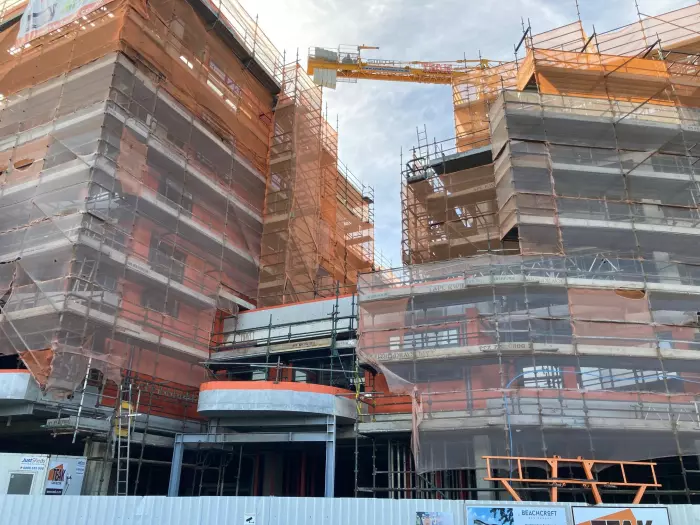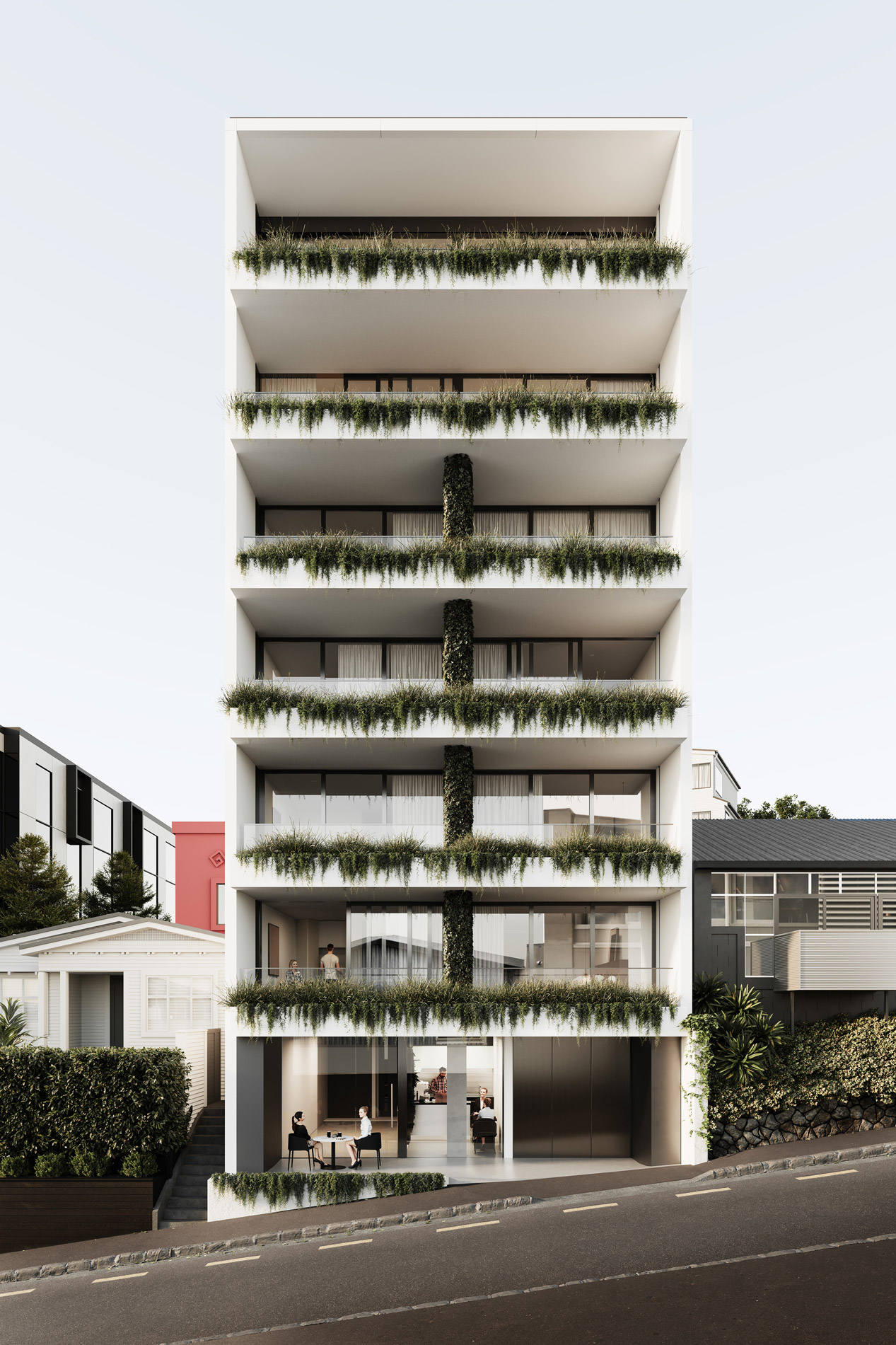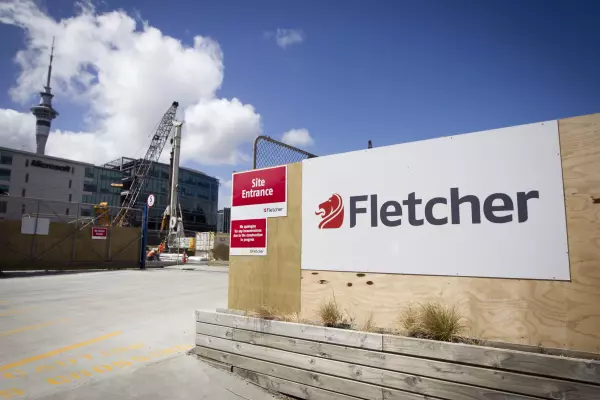Cash-strapped developers are offloading an increasing number of building projects as surging costs, delays and tighter financing rules strangle 'unsophisticated' speculators out of the market.
That has seen a number of developments put on the market as they deal with higher build costs, difficulties in locking in interested buyers and even a lack of builder availability.
Gareth Fraser, Auckland director of investment at Colliers, said with a host of properties now on market, prospective buyers had more choice and were “much more discerning” than over the past two years – when the majority of sales were transacted off market.
The fact that many of those properties already held a consent for development was becoming of more interest to prospective buyers, something that would have been "largely irrelevant" during the red-hot market conditions of the past two years.
That period yielded a record number of deals, with ‘unsophisticated’ and speculative buyers induced to jump into the market, able to land-bank at interest rates of 2% to 3% while capital appreciation ran at closer to 10% per annum.
But, with the official cash rate doubling to 1% since October and commercial banks expecting it to get closer to 3% by the end of this year, the shine has come off that yield calculation, he said.
There was also the challenge of labour issues and rampant build costs, driven by price hikes of as much as 50% for materials such as cladding and timber, and a pipeline of work for builders stretching out two-to-three years already.
Fraser said this had led to a host of properties, that were otherwise due for refurbishment, popping up a ‘for sale’ sign.
Usual suspects
In a nutshell, the market’s "getting back to normal", and the usual suspects are back, he said.
Steven Holden, an investment banker with Perseus Management, said residential developers, in particular, were being hit by lenders requiring a high number of pre-sales before any groundwork even started.
He said the biggest issue is the inability of buyers to conclude finance arrangements on pre-sales, as a result of tighter bank lending restrictions under the Credit Contracts and Consumer Finance Act (CCCFA).
Where the developer wasn't able to confirm a certain level of pre-sales, he said, normally at least 50%, “that usually puts them in the crapper because they’re in breach of bank covenants, and the entire thing rapidly becomes unwound”.
It's also tough to restart a project that’s part way through, he said.
There are several recent examples, including the mortgagee sale of a partially completed 15-unit townhouse complex in Sunnynook, north of Auckland.
The jury is also still out on the future of Onehunga’s troubled Beachcroft Residences, an 88-unit residential and retail development that has suffered myriad delays since construction started in 2018, resulting in mounting costs and an increased likelihood of bank defaults.
Holden expects a cascade of these failures until lending rules are relaxed, particularly for residential policy. While most of the developments he’s involved with use non-bank lenders, which are more flexible, those lenders still have pre-sale requirements “and the CCCFA has knocked the stuffing out of that”.
Factoring in escalation
Mark Farrands, head of advisory at JLL, also said it wouldn’t surprise him to see more developers start offloading their properties.
“The construction industry has been operating at capacity, and where bigger, vertical developments are concerned, there are really only a certain number of construction teams with the ability and capacity to do those type of jobs.”
He said the other issue was the time it takes to get consent, which is “far beyond" what statutory consent times in cities such as Auckland and Wellington.
Adding to that are capacity issues with contractors due to covid, on top of materials supply issues.
“All of that conspires to increase costs, meaning feasibility is a real challenge.”
Farrands, the former chief investment officer at the MaxCap Group, said he’d looked at a “number of deals” over the past year, which had subsequently failed the financial stress test. Building and other escalation costs were an important part of that, he said.
At the same time, banks were becoming more skittish about development funding.
“Sure, they’ll do it, but they want a strong profit margin in that feasibility and they want to be well de-risked in terms of pre-sales at the other end so they know how the loan is going to be repaid.”
No early sales = no build
The difficulties with pre-sales have been a significant factor in delays to the development of a seven-level residential development called Album, on Garfield Road, Parnell. This is dependent on pre-sales for its second-tier funding.
Despite having consent, and having removed the site’s original villa, developer Barbara Ritchie-Luxton remains unable to get her builder on site.
Ritchie-Luxton had originally planned to build a boutique hotel, but pivoted to six floors of apartments and ground-floor retail in the wake of covid and lending constraints.
Sales agent Louise De Martin of Ray White, who is marketing the property, said there had been good enquiries but that had yet to translate to actual sales to date.
Prices will range from $849,000 for 34sqm studios to $4.5m for the penthouse and sub-penthouse, she said.
“We’re finding buyers a little bit sluggish and non-committal, so we’re having to nurture buyers a little bit more.”
De Martin said a “big part of that” was the impact of new credit rules, which had been “an absolute disaster” for the residential market.
This story has been updated to remove references to a development that wasn’t a distressed sale.















